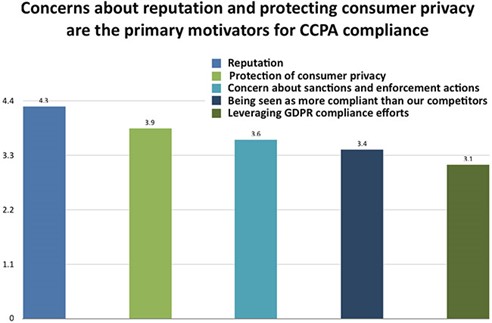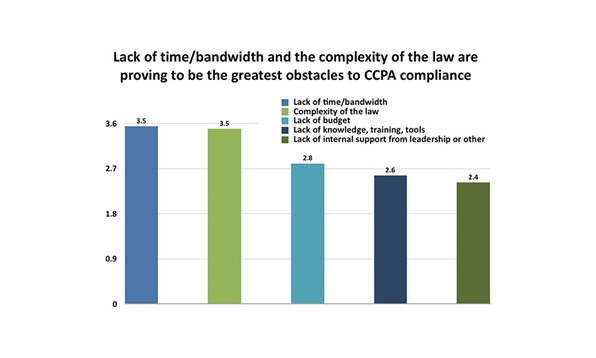Compliance with CCPA
A Guide for Businesses Handling California Consumers’ Personal Information
Contents
The Importance of CCPA Compliance for Your Business
In the digital era, consumer data is a goldmine for businesses. However, with this power comes responsibility. If your business processes personal data of California residents, the California Consumer Privacy Act (CCPA) applies to you. Whether your business operates in California or outside the state, if you collect personal information from California consumers, compliance with CCPA is essential.

The CCPA is one of the most stringent privacy laws in the United States, reflecting the growing consumer demand for transparency and control over how businesses collect, share, and use their personal data. Non-compliance with the CCPA can lead to substantial fines, up to $7,500 per violation.
At Data Collaboration Services (DCS), we are fully aware of CCPA’s principles and requirements. Our team can offer guidance to help align your data management practices with CCPA compliance standards. If you require more specific advice, we can also provide consulting services to ensure your business stays compliant.
What is CCPA?

The California Consumer Privacy Act (CCPA), which took effect in 2020, gives California residents the right to access, delete, and control their personal information held by businesses. It’s a state-level law that applies to for-profit businesses that meet certain criteria, such as having revenue over $25 million or handling the personal data of 50,000 or more consumers.
CCPA provides California residents with the following rights:
- Right to Know: Consumers can request details on what personal information a business collects, uses, shares, or sells.
- Right to Delete: Consumers can ask businesses to delete their personal information (with certain exceptions).
- Right to Opt-Out: Consumers can opt out of having their personal information sold to third parties.
- Right to Non-Discrimination: Consumers cannot be discriminated against for exercising their rights under the CCPA.
For businesses, complying with these rights is mandatory, and failure to comply can result in legal consequences.
Why CCPA Awareness is Crucial for Your Business
The CCPA doesn’t just apply to businesses based in California, as it has national implications for any company that collects data from California residents. Here’s why it’s essential for your business:
- Global Reach: The CCPA applies to any business that collects personal data of California residents, even if the business operates outside California.
- Heavy Penalties: Non-compliance can lead to penalties up to $7,500 per violation, and businesses may also be subject to enforcement actions by the California Attorney General.
- Customer Trust: Transparency is vital. Consumers are more likely to trust and engage with businesses that respect their privacy and protect their data.
- Legal Obligation: As privacy laws continue to evolve in the U.S. and internationally, CCPA compliance can help you stay ahead of the curve and avoid future legal issues related to consumer privacy.
How DCS Can Help Your Business Stay CCPA Compliant

At DCS, we understand the significance of CCPA compliance and how challenging it can be for businesses to stay up to date with the law’s requirements. While we do not offer full-scale CCPA consulting services, we can help guide you through the following key steps to ensure your business aligns with CCPA principles.
1. Adopting Privacy-by-Design Practices
We help businesses implement privacy-by-design frameworks that focus on minimizing the collection of personal data and securely handling it throughout its lifecycle. This includes ensuring that systems are built to manage and protect consumer data, in line with CCPA guidelines.
2. Offering Consulting for Data Handling and Security
DCS can provide consulting to help you assess your current data management practices and how well they align with CCPA. We offer actionable advice on how to improve your processes related to data access requests, deletion requests, and how to safely store and share consumer data while respecting consumer privacy.
3. Supporting Data Mapping and Risk Assessments
Understanding the data you collect is the first step toward compliance. DCS can help your business map the flow of personal data, identify what data is being collected, where it’s stored, and how it’s being processed. Conducting risk assessments is essential to understanding the potential gaps in your privacy practices, and DCS can guide you through this process.
4. Helping Your Business Respond to Data Subject Requests
CCPA mandates that businesses provide consumers with the ability to request access to their personal data, as well as request deletion. DCS can help your business develop an efficient process for managing these Data Subject Requests (DSRs) and provide you with systems that can handle them securely and within the legally required timelines.
5. Ensuring CCPA-Ready Vendor Contracts
Many businesses share personal data with third-party vendors. DCS can help you ensure that your contracts with third-party vendors align with CCPA requirements, specifically in relation to data processing, sharing and ensuring third-party compliance.
6. Assisting with CCPA Certification Readiness
While DCS doesn’t provide CCPA certification, we can assist you in preparing for the certification process by reviewing your data handling practices and aligning your documentation to meet certification standards. This will help ensure that your business is ready for third-party assessments and audits.
GDPR vs CCPA: Key Differences and Similarities
Though CCPA and GDPR both aim to protect consumer privacy, there are significant differences between the two regulations. Understanding these differences can help your business align its practices to meet both U.S. and EU data protection laws.
| Aspect | GDPR (General Data Protection Regulation) | CCPA (California Consumer Privacy Act) |
|---|---|---|
| Geographical Scope | Applies to all residents of the EU, regardless of where the business is located. | Applies to California residents, regardless of where the business is located. |
| Consumer Rights | Right to access, delete, and correct data. Right to object to processing and more. | Right to access, delete, and opt-out of data sale. |
| Penalties | Fines can reach up to €20 million or 4% of annual global turnover (whichever is higher). | Fines are up to $7,500 per violation. |
| Consumer Consent | Requires explicit consent for processing sensitive data (opt-in model). | Requires businesses to provide an opt-out option for data sales. |
| Data Protection Measures | Requires businesses to implement robust security protocols, including encryption. | Requires businesses to implement reasonable security practices. |
| Data Minimization | Businesses must only collect data necessary for specific purposes. | Businesses must limit the collection of personal data to what is necessary. |
| Transparency | Requires businesses to inform consumers about data collection and usage. | Requires businesses to inform consumers about their rights and data use. |
Key Differences:
- Geographical Scope: CCPA applies to California residents, while GDPR applies to all residents of the EU.
- Consumer Rights: Both laws give consumers the right to access, delete, and control their personal data, but the specifics of the rights and the request process differ slightly between CCPA and GDPR.
- Penalties: GDPR imposes larger fines up to €20 million or 4% of annual global turnover, while CCPA fines are lower at $7,500 per violation.
Similarities:
- Both laws emphasize consumer consent and transparency.
- Both require businesses to implement strong data protection measures and processes for handling data access requests.
- Both focus on data minimization, collecting only the data necessary to fulfill a specific business purpose.
Takeaway
Complying with CCPA is not just about avoiding fines, it’s about demonstrating that your business values consumer privacy and data security. At DCS, we can guide you through the technical and operational aspects of CCPA compliance, ensuring your data protection practices are aligned with the law and your customers’ expectations. Whether you need help with data mapping, responding to data subject requests, or ensuring your vendor contracts meet compliance standards, DCS is here to assist.
Stay compliant, build trust, and continue growing your business with confidence.
For more information or to discuss how we can assist with your CCPA compliance needs, contact us.
Frequently Asked Questions (FAQ's)
The California Consumer Privacy Act (CCPA) is a data protection law that gives California residents the right to know what personal data businesses are collecting, to request access to that data, and to request its deletion. It also mandates businesses to ensure data protection and transparency.
Yes, CCPA applies to any business that collects personal data from California residents, regardless of where the business is located.
Businesses that fail to comply with CCPA can face fines of up to $7,500 per violation and may also face enforcement actions from the California Attorney General.
If your business collects, processes, or shares personal data of California residents, CCPA requires you to implement transparency, security, and privacy practices to protect that data.
While DCS is not a CCPA consultancy, we are fully aware of the requirements and can provide consulting and guidance on how your business can align its data management and IT systems with CCPA principles.
CCPA compliance builds trust with consumers, helping your business establish stronger relationships with customers who value their privacy. It can also provide you with a competitive edge in the marketplace by demonstrating your commitment to data protection.
While DCS does not provide direct CCPA compliance services, we can assist in aligning your IT infrastructure, data handling practices, and security protocols with CCPA requirements, helping your business navigate the compliance process.

